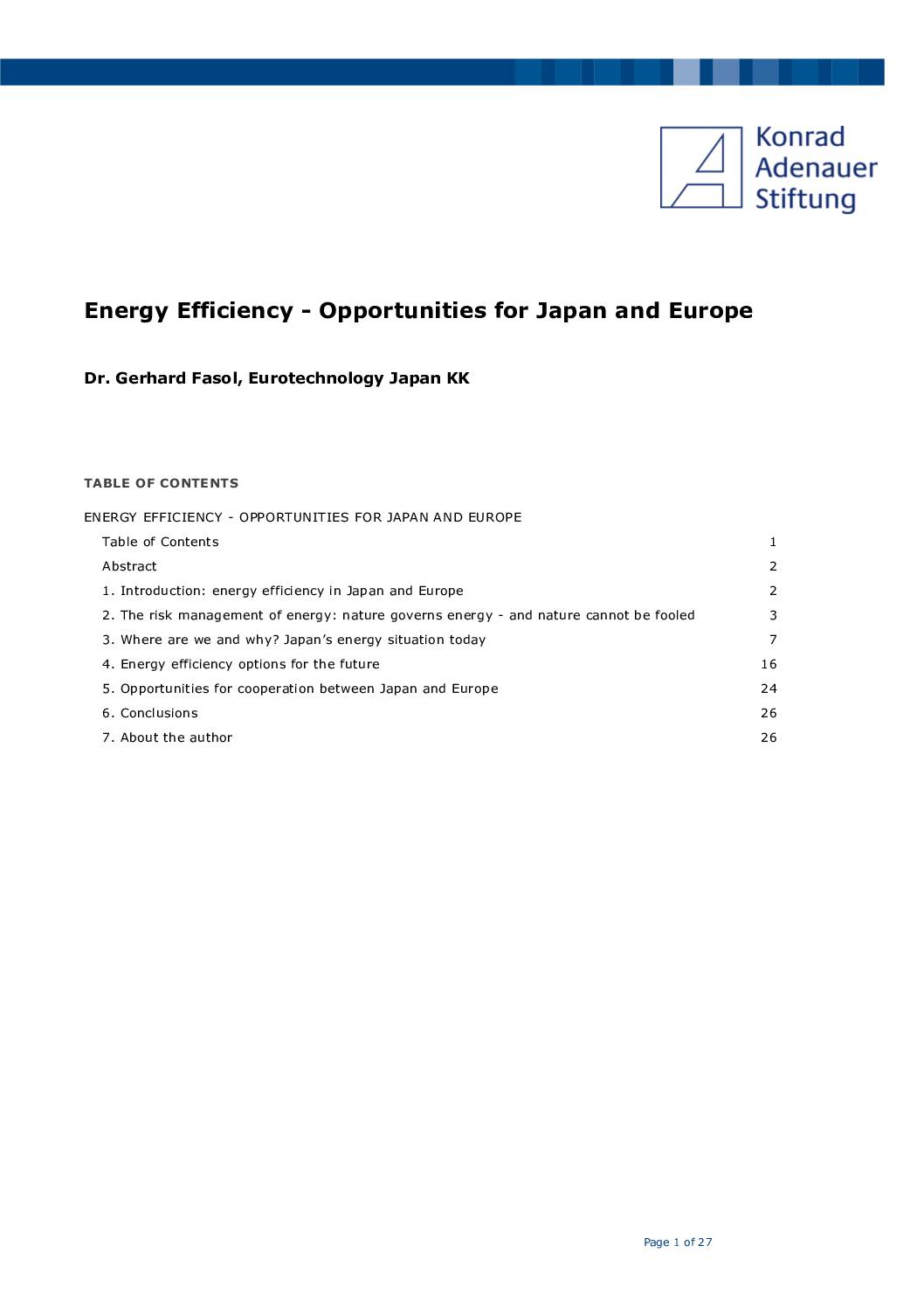The Fukushima-Dai-Ichi nuclear accident was a traumatic event with global impact on energy and electricity markets, risk management and regulations of the nuclear industry. The “National Diet of Japan Fukushima Nuclear Accident Independent Investigation Commission (NAIIC)” created by Japan’s National Parliament and chaired by Professor Kiyoshi Kurokawa, found that the Fukushima-Dai-Ichi nuclear disaster was primarily caused by human factors including “regulatory capture”: capture of the regulator by the same industry the regulator should regulate.
This report summarizes the major reasons for the Fukushima-Dai-Ichi nuclear accident and its impact, e.g. the accelerated introduction of renewable energy in Japan via feed-in-tariffs, and electricity market reform and liberalization.
Energy efficiency first of all requires us to avoid catastrophic impact on our environment, therefore we all have to learn as much as we can from the reasons which caused the Fukushima-Dai-Ichi nuclear accident. Secondly, we have to learn how to reduce our consumption of energy, and how to procure and use the energy we do need in the most efficient way.
This report also introduces opportunities for cooperation, joint business, investments and acquisitions between Europe and Japan in the field of energy, electricity generation, efficient use of energy, and proper management of the risks associated with energy – there are many more opportunities for cooperation between Japan and Europe, beyond this report.
Share this

Sectors: Cross cutting, Power sector, Renewables
Country / Region: Asia, Japan
Tags: climate relevant regulations, corporate reporting, electricity generation, energy, energy efficiency, impacts on systems and sectors, industry, natural disasters, renewable energies, risk management, rules and regulationsKnowledge Object: Publication / Report
Published by: Gerhard Fasol, Konrad-Adenauer-Stiftung
Publishing year: 2014
Author: Dr. Gerhard Fasol
